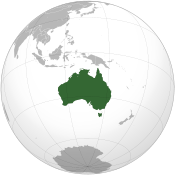Tropical moisture ceases to cause severe floods in South East Australia
Friday, March 26, 2021

Image: Bureau of Meteorology/NASA.
On Tuesday, higher than average amounts of precipitation have ceased in New South Wales (NSW), south of Queensland, and north-east of South Australia. Over the course of the prior five days, these heavy rains caused floods and hazards to farms and dwellings, with up to a month quantity of rainfall falling within 48 hours on Monday and Tuesday in some areas, notably 150mm of rain at the Great Dividing Range, Bureau of Meteorology (BoM) reported.

Image: Bureau of Meteorology.
On Tuesday, BoM said the situation reportedly started to ease, with rains moving towards the east, but emphasised the water levels were continuing to rise in some areas and many flood alerts remained active. Meteorologists said the eastern areas may clear from floodwater quickly, the other regions to the west of the Great Dividing Range would be affected for much longer, potentially weeks or months before the water levels come back to normal. Thick fog was likely to occur at approximately this coming weekend as air temperatures drop below dew point at night and mist may develop, meteorologists warned, as News.com.au reported.
Image: Bureau of Meteorology.
In Taree, NSW, ABC News reported multiple cows rescues in rivers and in the surf, and an instance of a dwelling being reportedly swept from premises on a wedding day of its owners. ABC News reported a farmer losing his animals and his house at Mid-North Coast. Of residential areas, Hawkesbury continued to experience raising levels of flood as of Monday. Ian Wright, a researcher from Western Sydney University, commented saying the floods in Hawkesbury are dangerous due to the terrain and rigorous water supply from adjacent rivers to the area, citing a related publication about it by the State Emergency Service.
On Monday, NSW Police has rescued a 80-year old woman trapped in a car at River Road, Wyong, Central Coast, with the car subsequently falling into the river shortly after the rescue was completed.
Local authorities warned people to stay away from flooded areas. Bureau of Meteorology issued Road Weather Alert for Sydney for all suburbs on Monday. Government agencies, including Disaster recovery officer Simon Oliver, from the Department of Primary Industries, said the government would offer support to people affected by the flood. Oliver said, "While it's still early days, we are planning to provide support including emergency fodder as well as support for those who need to move or dispose of stock [animals]."
BoM reported the weather may clear on Wednesday as a warmer, drier mass of air was expected to increase, with a coastal low entering Bass Strait on Wednesday.
Since March 16, Australian BoM has issued severe weather, marine wind, hazardous surf, and numerous minor to major flood warnings for the affected areas. La Niña was nearing its end, with the effects persisting in late March and early April, Bureau of Meteorology reported last week.
Images of the Flooding
Sources
- Bureau of Meteorology. "Bureau of Meteorology on Twitter" — Twitter, March 23, 2021
- "Warnings of thick blanketing of fog for coming days across east coast" — News.com.au, March 23, 2021
- "Motorist rescued from flood waters by police - Wyong" — NSW Police, March 22, 2020
- "Severe Weather Outlook" — MetService, March 22, 2021
- "Australia floods: Cows rescued from swollen rivers and beaches" — ABC (Australia), March 22, 2021
- "Farmers across NSW inspect livestock and properties after flood" — ABC (Australia), March 22, 2021
- "'Never seen anything like it': locals watch helplessly as floodwaters rise across New South Wales" — The Guardian, March 22, 2021
- "Hawkesbury residents 'really worried' as floodwaters rise to highest level since 1961" — SBSNews, March 22, 2021
- Bureau of Meteorology. "Severe Weather Update: Flooding for Sydney and Eastern NSW - 22 March 2021" — YouTube, March 22, 2021
- "Sydney Road Weather Alert" — Bureau of Meteorology, March 22, 2021
- "La Niña nears its end" — Bureau of Meteorology, March 16, 2021
- Nsw Ses. "Why Hawkesbury-Nepean floods are so dangerous" — YouTube, July 30, 2019

